Politics
Hypocritical politicians call for ‘jihad’
By Hasanboy Burhanov – Founder of the political opposition movement Free Uzbekistan
Manipulating the mass consciousness of Muslims
Turkish President Recep Erdogan, who considers himself “a great defender of Palestinians and Islam in the international arena,” speaking at a meeting of his party’s Parliamentary Group on Wednesday, November 15, said, “I clearly state this: Israel is a terrorist state. If Israel continues massacres, it will be condemned around the world as a terrorist state” ( https://www.iletisim.gov.tr/turkce/haberler/detay/cumhurbaskani-erdogan-ak-parti-tbmm-grup-toplantisinda-konustu-15-11-23 ).
During the hour-long emotional speech, Erdogan pledged to continue to defend the militant group Hamas, saying it was the political party chosen by the Palestinians.
On the same day, Emine Erdogan, the wife of the Turkish President, while speaking at the “One Heart for Palestine” summit in Istanbul, pointed out the religious dimention of the Palestinian-Israeli conflict: “I wonder how you will explain to Prophet Ibrahim that you killed more than 4,000 children for the sake of your twisted ideology?” (https://tccb.gov.tr/haberler/410/150196/emine-erdogan-filistin-icin-tek-yurek-zirvesi-ne-katildi ).
Apparently Emine Khanum does not believe that every human being will be held accountable for his deeds before Almighty Allah on the Day of Judgement. Otherwise, she and her husband would not manipulate the religious feelings of Turkish citizens for their own selfish purposes.
At the same time, the presidential couple does not mention that the Palestinian paramilitary groups, of which there are a couple of dozen according to various estimates, are divided along two ideological lines: Marxist-Leninist and Shiite. The extreme left-wing paramilitary groups are supported by China and other states with communist ideology, while the Shiite militants are supported by Iran. Members of Hamas, despite their adherence to the Sunni school of belief, have long been funded and coordinated by Iran and Russia.
And the most important thing that the Turkish “defenders of Islam” do not voice is that Iran, together with Putin’s regime, is pursuing a deliberate policy of Shiitisation of the Sunni population not only in the Middle East but also in Central Asia.
If we call things by their names, those people who call on the Islamic world to support and join the Palestinian militants to participate in a worldwide “jihad” against Israel, wish for the destruction of Sunni Muslims and the establishment of communist dictatorships in the world.
Erdogan’s “jihad” against Assad
Since the outbreak of the Syrian civil war in 2011, Recep Erdogan has repeatedly threatened Bashar al-Assad on his Twitter account and through the press, calling him a terrorist.
– “O Bashar al-Assad, by Allah, you will pay for this. God willing, we will ensure that this murderer will be brought to justice in the world” – 05.05.2013 (https://twitter.com/rterdogan/status/331043313341845505 ).
– “I no longer recognise Bashar al-Assad as a politician. He is a terrorist who commits state terror. A man who kills his own people, 110,000 citizens, is a terrorist” – 07.10.2013 (https://www.yeniakit.com.tr/haber/erdogan-esad-bir-terorist-6123.html ).
– “Now they are talking about figures of 600 (thousand), but no. In my opinion, about 1 million people have been killed in Syria. This death toll is still continuing” – 29.11.2016 (https://www.bbc.com/turkce/38145760 ).
During these years, there have been relentless calls from the territories of Russia and Turkey for Muslims in neighbouring countries to do their religious duty and take part in the “jihad” against the Assad regime in Syria. Tens of thousands of naive Muslims from Turkey and the CIS countries, having become hostages of false propaganda, died in a foreign country for the ambitions of hypocritical politicians.
But times have changed, President of Turkey Recep Erdogan has forgotten his threats, he no longer wants to hold Bashar al-Assad accountable for the massacres of the Syrian people. He doesn’t mind sitting at the same table with a tyrant who has drowned hundreds of thousands of innocent Syrians in blood.
The heads of the relevant ministries of Turkey and Syria have already met in Moscow on several occasions to discuss the normalisation of Syrian-Turkish relations. On November 11 this year, Recep Erdogan and Bashar al-Assad met in Riyadh, attending the joint Summit of the Arab League and the Organisation of Islamic Cooperation, which was dedicated to the Palestinian-Israeli conflict.
As of March 2023, the death toll in Syria’s civil war is estimated at 913,000.
Ignoring the calls of the lying jihadists, the Muslims of the Central Asian countries should concentrate all their strength and capabilities to fight Putin’s viceroys, who are promoting the revival of the USSR-2 project.
Illustrative Photo by Pixabay:https://www.pexels.com/photo/low-section-of-man-against-sky-247851/
Source: Political Opposition Movement “Erkin O’zbekiston” (Free Uzbekistan), Dusseldorf, Germany
https://www.facebook.com/groups/ErkinOzbekiston
https://www.youtube.com/c/ErkinOzbekiston
https://t.me/erkinozbekiston
https://www.instagram.com/erkinozbekiston
Politics
Elevating EU-Central Asia Relations: A New Era of Strategic Partnership
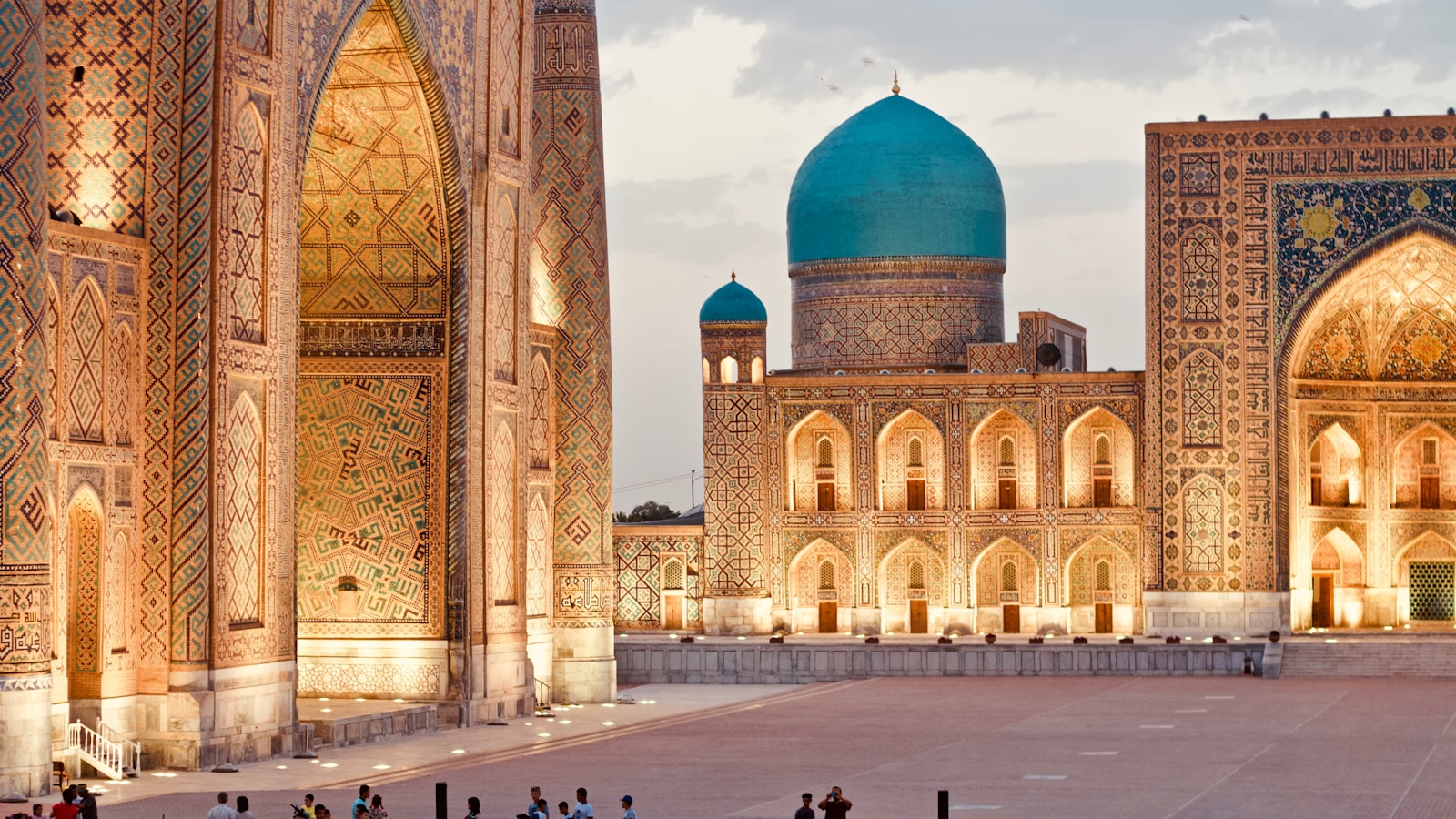
In a historic milestone for Europe-Asia relations, Antonio Costa, President of the Council of the European Union, co-chaired the first-ever EU-Central Asia Summit in Samarkand, Uzbekistan. Against the backdrop of one of Central Asia’s most storied cities, Costa delivered a visionary speech that underscored the deepening ties between the two regions and charted an ambitious roadmap for the future.
A Historic Meeting in the Heart of Central Asia
Opening his remarks, Costa expressed gratitude to Uzbek President Shavkat Mirziyoyev for hosting the summit in Samarkand, a city celebrated as a crossroads of civilizations throughout history. “Today, I am proud to be part of a new chapter in the modern history of Samarkand,” he said, emphasizing the significance of elevating EU-Central Asia relations to a “dynamic ‘strategic’ partnership.”
The summit marks three decades since diplomatic relations were established between the European Union and the five Central Asian nations—Kazakhstan, Kyrgyzstan, Tajikistan, Turkmenistan, and Uzbekistan. Reflecting on this journey, Costa noted how cultural exchanges, scientific collaboration, and trade have long connected Europe and Central Asia. His recent visits to Bukhara and Samarkand reinforced his appreciation for the region’s rich heritage and its enduring role in shaping global connectivity.
Multilateralism in an Uncertain World
In today’s volatile international landscape, Costa emphasized the critical importance of a rules-based multilateral order. “Our meeting today encourages even more EU-Central Asia cooperation in multilateral fora,” he stated, reinforcing their shared commitment to peace and prosperity. This sentiment was echoed by the announcement of the Samarkand Climate Forum , which highlights regional efforts to tackle climate change—a challenge Costa described as existential for both regions.
Climate change poses grave threats, including water scarcity, pollution, and biodiversity loss, all of which jeopardize security and economic stability. To address these issues, Costa pointed to the work of Europe’s two Climate Banks—the European Bank for Reconstruction and Development (EBRD) and the European Investment Bank (EIB) —which are already supporting climate action projects in Central Asia. He pledged to expand this cooperation significantly, signaling a forward-looking approach to sustainable development.
Strengthening Economic Ties Through Innovation
Underpinning the strategic partnership is a robust economic relationship. The EU remains one of Central Asia’s largest investors and second-largest trading partner. Building on frameworks like the 2019 EU Strategy for Central Asia , the 2023 Joint Roadmap , and the Global Gateway Initiative , Costa outlined plans to explore new areas of collaboration, including digital technologies, transport infrastructure, and raw materials.
“Our partnership is a journey, not a destination,” Costa remarked, calling on leaders to identify opportunities for deeper engagement. With initiatives like the Global Gateway aimed at fostering sustainable investments, the EU is positioning itself as a key ally in Central Asia’s development trajectory.
Addressing Shared Security Challenges
Security emerged as another cornerstone of the summit agenda. Costa commended ongoing efforts to combat transnational threats such as terrorism, drug trafficking, and violent extremism. Highlighting programs on border management and counterterrorism, he praised the EU’s longstanding support for regional stability. Notably, the newly agreed-upon dialogue on counterterrorism and violent extremism represents a significant step forward.
He also lauded the recent resolution of border disputes, specifically citing the historic agreement signed by Tajikistan and Kyrgyzstan earlier this year. “In turbulent times, we need more examples like this to solve conflicts peacefully,” Costa said, underscoring the value of diplomacy.
Turning to Afghanistan, Costa acknowledged the spillover risks posed by insecurity in the region. “Central Asia has valuable experiences and insights on how to best mitigate these risks,” he observed, advocating for joint efforts to ensure regional stability.
Standing Firm Against Russian Aggression
Perhaps the most poignant segment of Costa’s address focused on Russia’s war in Ukraine. “This war goes far beyond Ukraine and Europe,” he declared. “Russia’s aggression is an assault on the very principles of the rules-based international order.” Costa reiterated the EU’s unwavering support for a comprehensive, just, and lasting peace in Ukraine, urging Central Asia to join in defending multilateralism.
“The principles laid out in the United Nations Charter are not just words on paper—they represent the shared commitment of nations to prevent conflicts, promote peace, and safeguard the well-being of our citizens,” he stressed. In light of growing disinformation campaigns, Costa affirmed the EU’s dedication to strengthening resilience against such threats, both within its borders and among partner countries.
Investing in the Future
Concluding his remarks, Costa captured the spirit of the summit with its official motto: “Investing in the future.” He expressed optimism about the potential for EU-Central Asia cooperation to serve as a model of what can be achieved through mutual trust and ambition. “Our relations have never been stronger,” he asserted, “and now, we must move forward with ambition to write the next chapters of the strategic partnership between Central Asia and the European Union.”
As delegates left the ancient halls of Samarkand, they carried with them a renewed sense of purpose and possibility. Under Antonio Costa’s leadership, the EU has signaled its readiness to forge a transformative alliance with Central Asia—one rooted in shared values, common goals, and a commitment to building a better world.
This inaugural summit may well prove to be a turning point in Europe-Asia relations, setting the stage for a new era of collaboration and progress.
Politics
Europol’s Capture25 Photo Competition: A Lens on Law Enforcement’s Mission to ‘Make Europe Safer’

The Hague, April 4, 2025 — Europol has launched its annual photo competition, Capture25 , inviting law enforcement officers across the EU and partner countries to showcase their skills behind the lens. This year’s theme, ‘Making Europe Safer’ , calls for images that highlight the diverse efforts of officers working tirelessly to protect citizens—from combating organized crime to fostering community trust.
A Celebration of Law Enforcement’s Unsung Heroes
Europol’s competition, now in its latest edition, recognizes the critical role photography plays in documenting law enforcement’s daily realities. “Photography preserves perishable evidence,” notes a forensic photography expert, emphasizing how images capture everything from crime scenes to victim injuries, aiding investigations and legal proceedings 357. Beyond forensics, the contest also celebrates the human side of policing, such as officers on patrol, training exercises, and community engagement initiatives.
Capturing Cooperation and Creativity
As Europol’s work often hinges on international collaboration, submissions showcasing cross-border operations are particularly encouraged. “Police have long applied photography as an evidentiary and surveillance technology,” historians observe, underscoring its role in maintaining social order 4. This year, creative interpretations of the theme are also welcome, including abstract compositions or innovative techniques that challenge conventional perspectives—provided they avoid AI-generated or enhanced content. “Traditional photography methods should remain at the core,” Europol insists, aligning with debates over authenticity in law enforcement imagery 68.
How to Participate
Eligible photographers—law enforcement personnel from EU Member States or countries with Europol agreements—can submit up to five entries by August 8, 2025. Winners will receive a trip for two to Europol’s headquarters in The Hague, with their work featured in calendars, social media, and other publications.
A Tribute to a Vital Profession
“Whether professional or amateur, Europol is excited to see their skills in action,” the agency states, urging participants to “capture the best moments of law enforcement.” As the competition underscores, these images not only serve as historical records but also remind the public of the dedication behind the badge 19.
Politics
Commission presents a European internal security strategy
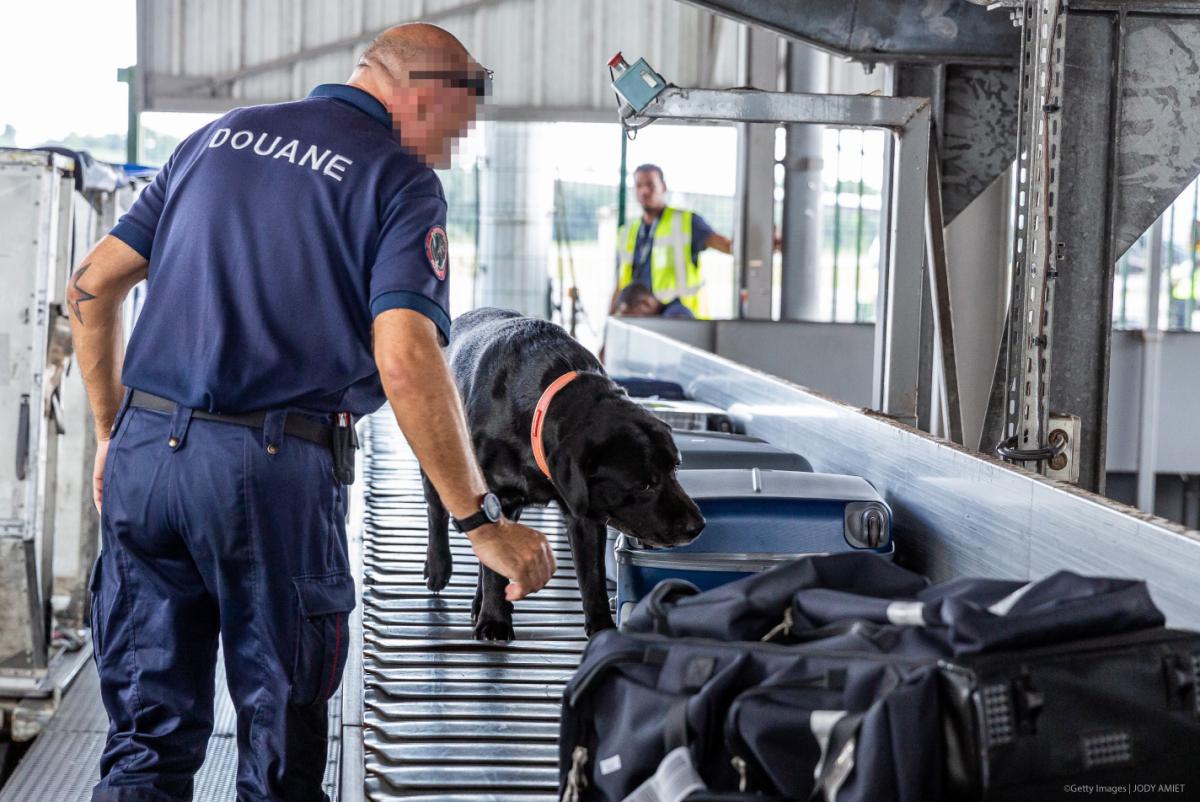


DISCLAIMER: Information and opinions reproduced in the articles are the ones of those stating them and it is their own responsibility. Publication in The European Times does not automatically means endorsement of the view, but the right to express it.
DISCLAIMER TRANSLATIONS: All articles in this site are published in English. The translated versions are done through an automated process known as neural translations. If in doubt, always refer to the original article. Thank you for understanding.

– Advertisement –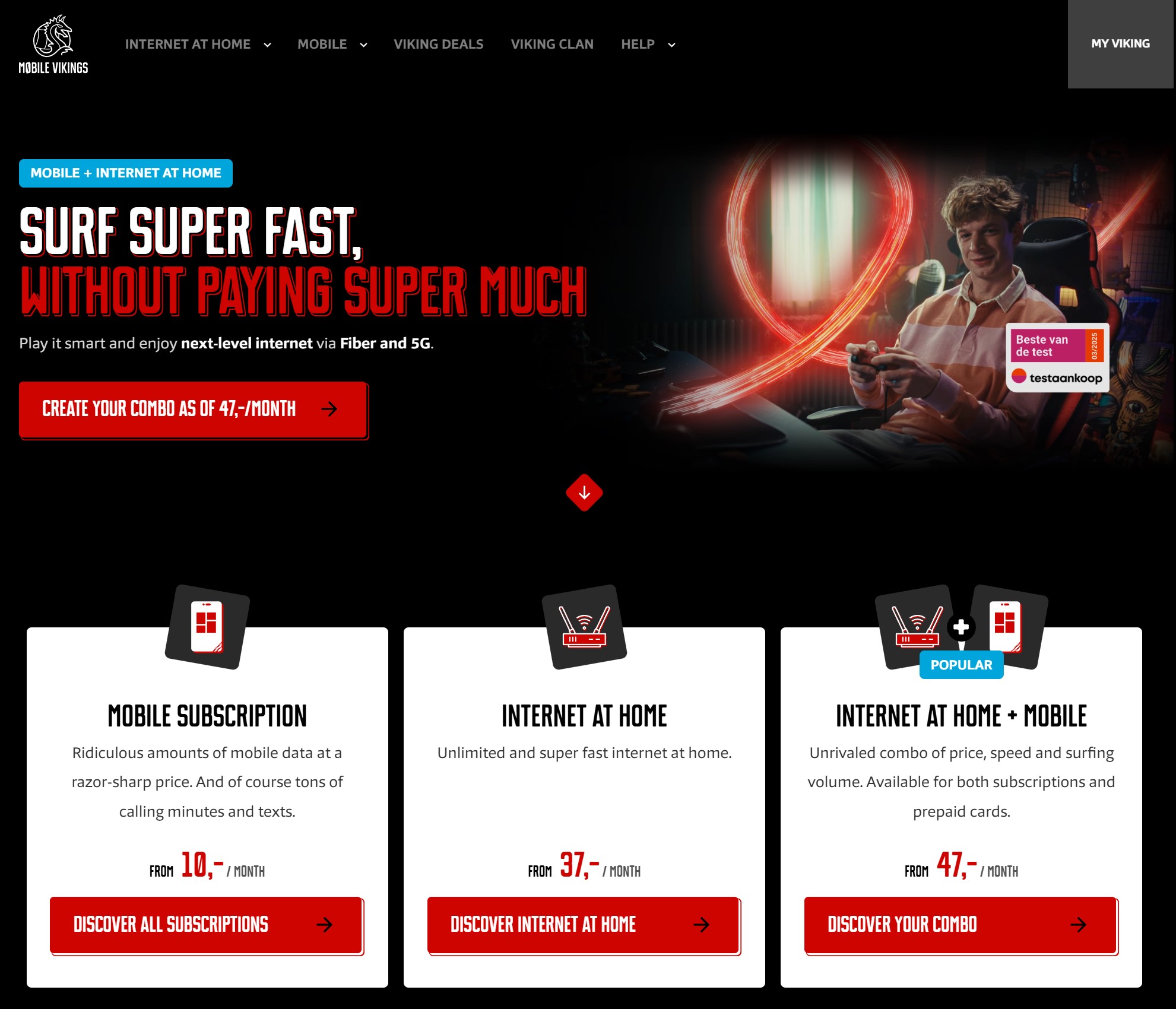
– Advertisement –
The Commission has presented ProtectEU, a new European internal security strategy to support EU countries in guaranteeing security for its citizens. It sets out a workplan with a stronger legal framework, better information sharing and closer cooperation.
To address increasing security and hybrid threats like terrorism, organised crime, cybercrime, and attacks on critical infrastructure, Europe needs to review its approach to internal security. The strategy aims to adopt a whole-of-society approach that includes citizens, businesses, researchers, and civil society who can contribute to better safety for all.
Key objectives and actions:
- a new European internal security governance
- anticipating security threats through new ways of sharing intelligence
- more effective tools for law enforcement and stronger justice and home affairs agencies
- building resilience against hybrid threats
- fighting serious and organised crime
- combatting terrorism and violent extremism
- the EU as a strong global player on security
The actions are backed by evidence from the EU Serious and Organised Crime Threat Assessment (EU-SOCTA). The strategy complements the preparedness union strategy and the European defence white paper. Together with the forthcoming European Democracy Shield, they form a comprehensive framework for a safe, secure, and resilient EU.
For more information
Press release
Factsheet
Questions and answers
Security and defence
The European internal security strategy
Internal Security
Source link
More from the author
– EXCLUSIVE CONTENT –
-

 Health & Society4 days ago
Health & Society4 days agoThe Art of Earthing – Grounding Yourself for Better Physical Health
-

 Health & Society6 days ago
Health & Society6 days agoNatural Sleep Solutions – Creating a Restorative Nighttime Routine
-

 Health & Society7 days ago
Health & Society7 days agoCold Showers and Beyond – Embracing Temperature Therapy for Vitality
-

 Sports6 days ago
Sports6 days agoInter: Acerbi’s renewal is already there and the clause is no longer a concern
-
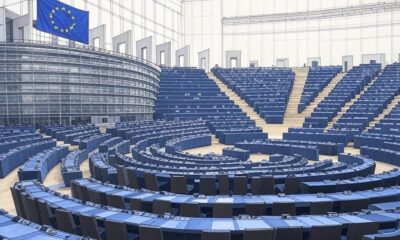
 Politics2 days ago
Politics2 days agoEU Parliament Tackles Steel Industry, Fundamental Rights, and Budget Priorities in Plenary Session
-

 EU & the World5 days ago
EU & the World5 days agoYoung Scooter’s Kids: About the Late Rapper’s Daughter & Sons
-

 Sports2 days ago
Sports2 days agoNBA, Steph Curry and Nikola Jokic show: Memphis knockout, Minnesota no
-
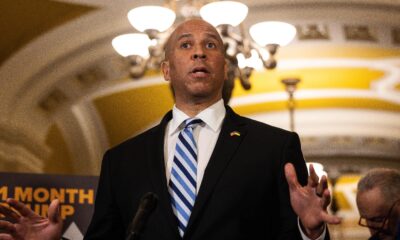
 EU & the World2 days ago
EU & the World2 days agoIs Cory Booker Still Speaking? How Long His Filibuster Lasted








